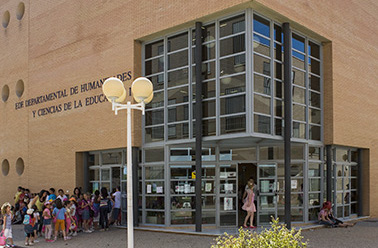Presentación
{{pre.error[0].message}}
Importante:
- Documento de ayuda a tu matrícula.
Atención: En el curso 2025-26 entra en vigor esta nueva versión del Máster.
La adaptación entre versiones no supondrá perjuicio o el menoscabo en los derechos y garantías del actual estudiantado.
Puede acceder a la versión anterior del Máster en el siguiente enlace.
Atención:
En el curso académico 2025-26, solo se ofertará en la UAL el itinerario de 'Sector Agroalimentario' y el "Itinerairo no Dual". No se ofertarán en la UAL las asignaturas que configuran los itinerarios siguientes:
Itinerario: Sector Energético (Universidad Internacional de Andalucía)
- 71461601 Digitalización de la Cadena de Valor y Regulación de Empresas del Sector Energético.
- 71461602 Formación Práctica en Digitalización del Sector Energético.
- 71461603 Digitalización e Innovación de Empresas del Sector Energético.
- 71461604 Formación Práctica en Proyectos de Innovación de Empresas del Sector Energético.
Itinerario: Sector Sanitario (Universidad de Granada)
- 71461609 Digitalización de la Cadena de Valor y Regulación de Empresas del Sector Salud.
- 71461610 Formación Práctica en Digitalización de Empresas del Sector Salud.
- 71461611 Digitalización e Innovación de Empresas del Sector Salud.
- 71461612 Formación Práctica en Proyectos de Innovación de Empresas en el Sector Salud.
La transformación digital constituye un reto constante para las empresas, que pueden aprovechar las tecnologías emergentes para la creación de nuevos productos y servicios: desde la conectividad y digitalización de procesos, la gestión inteligente y sostenible de infraestructuras, hasta nuevas formas de atender y adelantarse a las demandas de los clientes gracias a las tecnologías emergentes (Big Data, Inteligencia Artificial, Robótica, etc.).
El proceso de transformación digital necesita de consultores de tecnología, profesionales cualificados en tecnología que comprendan su impacto en el entorno empresarial y lideren el cambio y la innovación tecnológica en una empresa con las mayores garantías de éxito.
Se ha diseñado un Máster que forma a consultores tecnológicos con alta proyección en innovación, enfocados para dar soluciones a los retos que planteen las diferentes tecnologías emergentes. Especialmente relevante será cómo preparar a la organización para recoger, digerir e impulsar el modelo de innovación que más se adecue a la realidad de la empresa.
En definitiva, un programa enfocado a formar profesionales con las siguientes características:
- Profesionales altamente cualificados para liderar responsabilidades relacionadas con la transformación digital y que incorporen competencias en innovación digital que los capacite para promover estrategias de digitalización en las empresas.
- Profesionales, que como consultores externos, propongan e integren sistemas digitales complejos en sus empresas clientes, capacitándolas para adaptarse a situaciones complejas en un entorno en constante evolución.

Perfil recomendado para estudiante de nuevo ingreso
El Máster Universitario en Transformación Digital de Empresas está especialmente indicado para titulados del Grado de Ingeniería Informática o del ámbito de las Ingenierías en general, y de las más afines en particular (Ingeniería Industrial o determinadas especialidades de Ingeniería de Tecnologías de Telecomunicación, así como Matemáticas, Física o Estadística).
Además de tener uno de estos títulos se espera que el estudiante tenga una clara disposición a conocer la organización, estructura, cadena de valor y principales procesos de negocio de una empresa ya que es necesario que comprenda el entorno empresarial para convertirse en consultor tecnológico o líder de innovación digital de una empresa.
Por ello, este master ofrece una oportunidad única para que los ingenieros sin experiencia, o aquellos con experiencia en otras responsabilidades, adquieran nuevas competencias como consultor tecnológico y se incorporen a un nicho laboral muy demandando.
Perfil de Egreso:
Profesionales especializados en transformación digital de empresas.
Datos generales
Rama de conocimiento:
{{pre.presentacion[0].nom_rama}}
Duración del programa:
{{pre.presentacion[0].n_creditos}} Créditos / {{pre.presentacion[0].n_duracion}} años
Tipo de enseñanza:
{{pre.otros_datos[0].tip_ensenanza}}
Lengua(s) utilizadas:
Ámbito de conocimiento:
{{pre.presentacion[0].nomambito}}
Campos de Estudio - ISCED:
{{pre.presentacion[0].c_campos_estudio}}
{{pre.presentacion[0].c_campo_estudio_2}}
Coordinación
Teléfono: {{coo.coordinador[0].tlfcoo | trim}}
E-mail: {{coo.coordinador[0].emailcoo}}
E-mail: {{c.cen_email}}


















